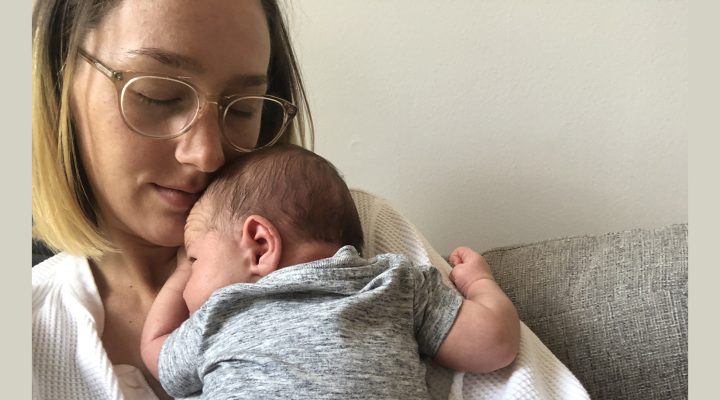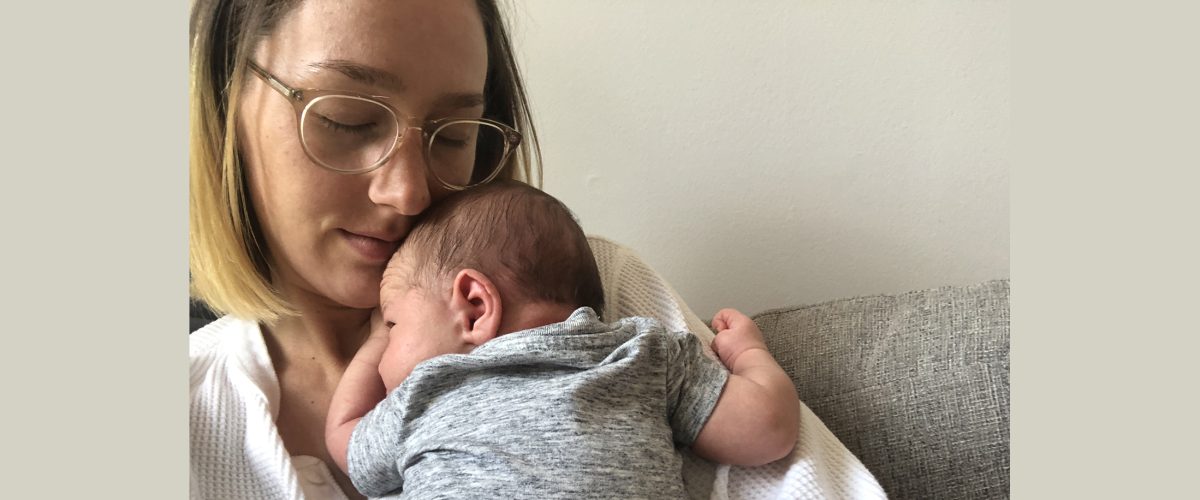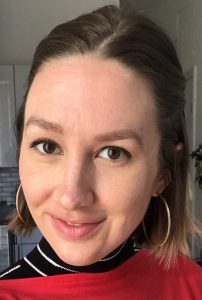I knew postpartum depression was coming for me. The darkness of depression has companioned me during various seasons of my life, and I knew my hormones weren’t going to give me a break after having a baby.
It lasted for nearly a year. Otis was a joy. And I wanted to be a mom, so I felt guilty about just how sad I was. I felt like I wasn’t the good my family deserved, and that made me feel worse. I lost myself.
Not even two months into Otis’ life, I started to dread the nights. The sun would go down, and my anxiety would skyrocket. I would prepare my middle-of-the-night comforts beside the rocking chair in the nursery. I would set out a pillow and a blanket in the living room for his early morning wakeup. I would try hard to make the night easier, but sometime in the too-early morning, around his second or third feeding of the night, I always felt desperately alone.
I’d wearily pull Otis out of bed, sit down in the rocking chair, and pull a blanket over me while he ate. I’d rock and wait and glance above my right shoulder out the window. I hoped with my whole being I’d glimpse subtle light behind the dark tree limbs. I kept watch for the morning like my soul depended on it.
“I kept watch for the morning like my soul depended on it.”
As soon as I saw a hint of purple lightening the sky, the relief washed over me. It was an illusion, but I felt far more supported, safer in the day than I did at night. Maybe I just needed to know other people were awake too. Maybe I wanted to pretend like my life was not completely different. Maybe I ached not to keep facing everything the darkness made me face.
But darkness is a blessing. From the darkness of the womb, of the ground, of caves and sleep and compost, God creates life. We have a physical fear response to darkness because we can’t see as well in the dark. When it gets dark, we’re vulnerable, and we have to confront our fears. So existing in the dark takes a deep faithfulness. It means we must trust in more than just our senses. And just because it’s dark doesn’t mean we are alone. Even in the dark, in our waiting for things to be different, in depression, loss, grief, death, God is still God.
This is the ancient promise, the one the old prophets repeated to the heartbroken Jewish people, aching for the advent of God’s reign: God never stops saving us. God never stops saving us, even when we can’t see it. But, as the Christmas story reminds us every year, God’s salvation comes for us from places we least expect it. God breaks into our world on the margins of society, in least-likely Bethlehem, when we think we’re lost and alone, and especially in the dark.
One night when I responded to Otis’ middle-of-the-night cries for food, little baby boy looked up at me with bright eyes and smiles, babbling so much, like he was thrilled I was awake with him, and he needed to tell me a story.
“Darkness sends us right into God’s arms, if we will let it.”
I never got over my fear of the slow dark hours, so when Otis started sleeping, it felt like a balm in an endless wilderness. Seeing through the dark is easier when you’ve come out of it, but I still wish I had allowed myself to notice the gifts of quiet, intimate nights. I wish I had accepted the invitation from the dark to confront how I felt and trust in a new way. I wish I had listened in those early morning hours for God’s response to my doubt and grief: that I am loved.
Darkness sends us right into God’s arms, if we will let it. So being faithful to the Advent season is actually about leaning into the darkness and watching for God’s blessing of hope growing in places we least expect it.
Before Advent is about counting down the days until Christmas, it’s about waiting and wishing with our whole selves things were different. It’s about giving our hearts to God, telling God we wish things were different. It’s about existing in the dark with steady faithfulness, believing there’s a gift in this waiting-for-things-to-be-different season.
The Christmas story is just another one of God bringing glory from the smallest, darkest, most overlooked places. Hearing this holy, ancient story, helps us rest right where we are, in the arms of our God who grows the promise for us, even when we’re sleep deprived, grumpy and can’t gather the strength to believe it.
Lesley-Ann Hix Tommey serves as assistant minister at Plymouth Church in Brooklyn, N.Y. She previously served through the Cooperative Baptist Fellowship as ministry facilitator for Rauschenbusch Metro Ministries in New York City. She is a journalism graduate from the University of North Carolina, Chapel Hill, and earned a master of divinity degree from Mercer University’s McAfee School of Theology.



